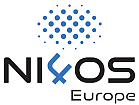Year: 2021
Type: Article
Title: Haploidentical Stem Cell Transplantation in Patients with Myelodysplastic Syndrome: Case Report First Experience
Author: Pivkova Veljanovska, Aleksandra
Author: Panovska Stavridis, Irina
Author: Chadievski, Lazar
Author: Trajkova, Sanja
Author: Popova-Labachevska, Marija
Author: Mojsovska, Tara
Author: Stojanoska, Simona
Author: Ridova, Nevenka
Author: Krstevska Balkanov, Svetlana
Author: Stojanoski, Zlate
Author: Spasovski, Dejan
Author: Grubovic-Rastvorceva, Radica
Author: Georgievski, Borche
Abstract: BACKGROUND: Allogeneic stem cell transplantation (ASCT) is a potentially curative therapeutic approach in patients with intermediate and high-risk myelodysplastic syndrome (MDS). If a family sibling or unrelated donor is not available mismatched donors are viable option for young patients with no comorbidities. The aim of this case presentation was to evaluate our first experience with haploidentical transplantation for this indication. CASE PRESENTATION: We present a case of 50 years male patient with myelodysplastic syndrome (MDS) diagnosed at University Clinic for hematology, Skopje, North Macedonia. Patient was scored in IPSS -R as high risk patient. He was referred for HLA DNA typing of family siblings and since he didn’t have identical sibling and unrelated donor, he was referred to continue treatment with haploidentical stem cell transplantation. He received Flu Bu conditioning and PTCY, cyclosporine and MMF for GVHD prophylaxis. Peripheral blood stem cells (PBSC) from his mismatched brother were infused in the amount of CD34=5.8x106/kg. He experienced prolonged engraftment, severe infective bacterial infections and CMV reactivation with clinical manifestation of CMV colitis. He was successfully treated with antiviral drug and completely resolved. His bone marrow analysis showed complete remission and chimerism evaluation revealed high donor engraftment. Patient is now +34 months post transplant in complete remission. CONCLUSION: The use of a mismatched donor increases the risk of NRM, but there is also evidence to suggest that an haploidentical donor is a valid choice, as general outcome appears to be at least similar to MUD.
Publisher: Scientific Foundation SPIROSKI
Relation: Open Access Macedonian Journal of Medical Sciences
Identifier: oai:repository.ukim.mk:20.500.12188/15548
Identifier: http://hdl.handle.net/20.500.12188/15548Identifier: 10.3889/oamjms.2021.7542
Identifier: https://oamjms.eu/index.php/mjms/article/download/7542/6451Identifier: https://oamjms.eu/index.php/mjms/article/download/7542/6451Identifier: 9
Identifier: C
Identifier: 250
Identifier: 253


